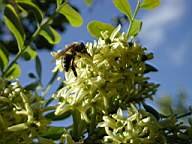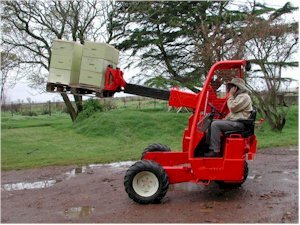Beekeeping
Bees
 Makana Meadery employs bees of the species Apis mellifera capensis. The climate in our region of the Eastern Cape province of South Africa is mild with occasional cold fronts. Winters can be chilly, but are never outright cold, with one or two frosts a year. As such, bees can survive as outdoor colonies.
Makana Meadery employs bees of the species Apis mellifera capensis. The climate in our region of the Eastern Cape province of South Africa is mild with occasional cold fronts. Winters can be chilly, but are never outright cold, with one or two frosts a year. As such, bees can survive as outdoor colonies.
Flowering plants


The finest pure honey gathered from the diverse range of 4500 species of flowering plants within the Albany region of the Eastern Cape of South Africa is our most important ingredient. In addition to the different distinct floral types of the region which impart unique flavours to the honey, is the area's unpredictable rainfall. Both factors combined mean that honey produced is never quite the same in the same place the next year. Wild vegetation is also naturally strictly organic.
Operations
Makana Meadery employs a palletized beekeeping system using a 3 wheel drive truck mounted Manitou forklift and cage - protected palletized beehives. The cages protect the beehives from honeybadgers, baboons, other wild animals and people.

Bee facts
- Makana Meadery currently employs 350 queen bees and about 175 000 000 bees who collectively fly on average 630 000 000 kilometers a day.
- The Makana Meadery queens lay an average of 875 000 eggs per day.
- Makana Meadery workers remove 175 kilograms of dead bees per day from beehives and deposit them in the bush at the secret 'burial ground of the bees'.
- Makana Meadery bees go to the toilet every day and deposit 38 kilograms of little yellow spots on the environment. (ever wondered where those little yellow dots on the windscreen come from?)
- Makana Meadery employees get stung an average of 3240 times a year each. This means that at the end of each year, the equivalent of one full beehive will have stung us.
[ Home] [ Top of Page ] [Feedback]



 Makana Meadery employs bees of the species Apis mellifera capensis. The climate in our region of the Eastern Cape province of South Africa is mild with occasional cold fronts. Winters can be chilly, but are never outright cold, with one or two frosts a year. As such, bees can survive as outdoor colonies.
Makana Meadery employs bees of the species Apis mellifera capensis. The climate in our region of the Eastern Cape province of South Africa is mild with occasional cold fronts. Winters can be chilly, but are never outright cold, with one or two frosts a year. As such, bees can survive as outdoor colonies.

